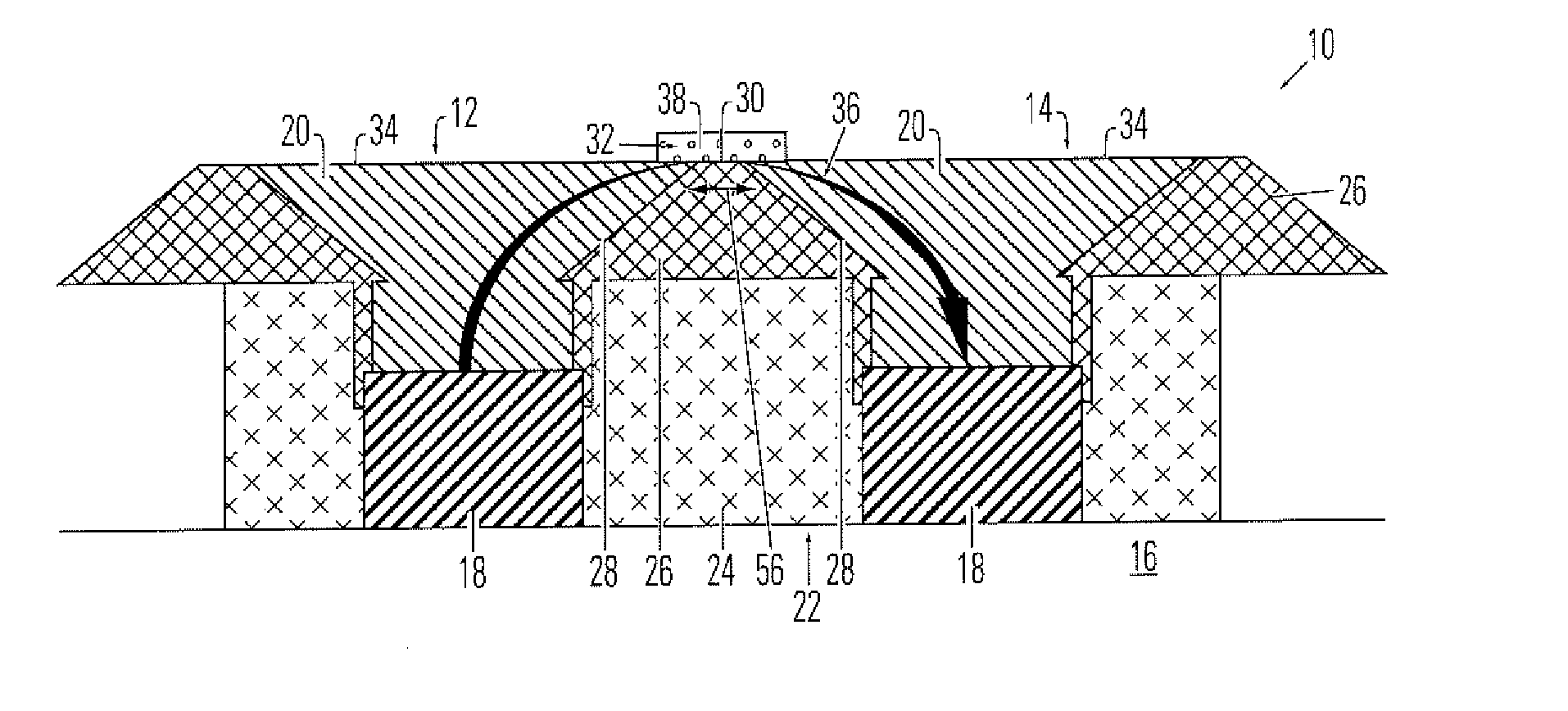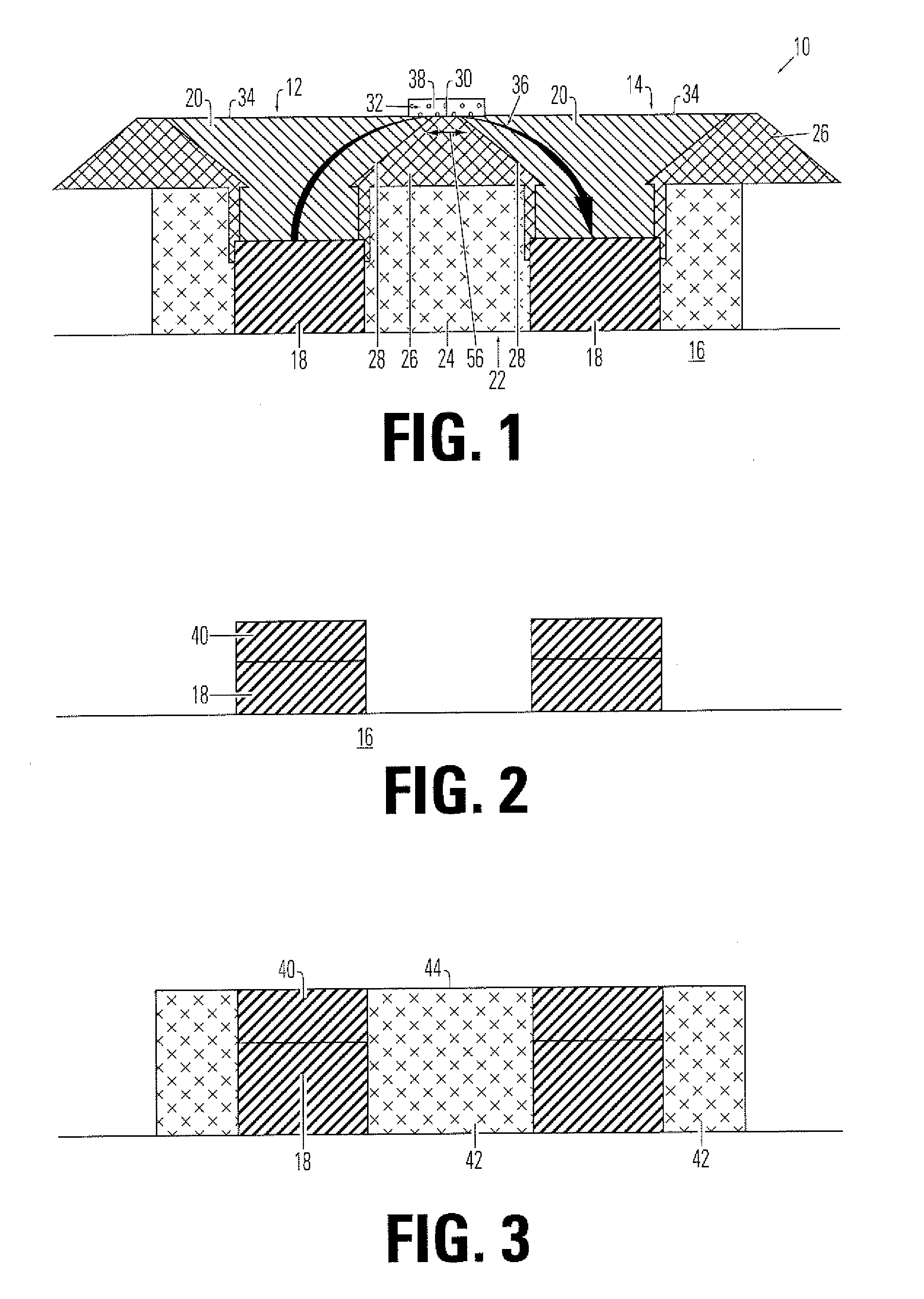Memory device and manufacturing method
a memory device and manufacturing method technology, applied in semiconductor devices, semiconductor/solid-state device details, electrical devices, etc., can solve problems such as problems in manufacturing such devices with very small dimensions
- Summary
- Abstract
- Description
- Claims
- Application Information
AI Technical Summary
Benefits of technology
Problems solved by technology
Method used
Image
Examples
Embodiment Construction
[0022] The following description of the invention will typically be with reference to specific structural embodiments and methods. It is to be understood that there is no intention to limit the invention to the specifically disclosed embodiments and methods but that the invention may be practiced using other features, elements, methods and embodiments. Like elements in various embodiments are commonly referred to with like reference numerals.
[0023]FIG. 1 shows a memory device 10 having first and second electrodes 12, 14 on an intermetallic dielectric base 16. Each electrode comprises a lower electrode element 18, typically comprising tungsten, aluminum, copper, other metals commonly used in integrated circuit manufacturing, or other conductive material, adjacent to base 16 and an upper electrode element 20, typically made of TiN. Electrodes 12, 14 are separated by an electrode separation element 22. Electrode separation element includes a lower portion 24 of a separation material, ...
PUM
 Login to View More
Login to View More Abstract
Description
Claims
Application Information
 Login to View More
Login to View More - R&D
- Intellectual Property
- Life Sciences
- Materials
- Tech Scout
- Unparalleled Data Quality
- Higher Quality Content
- 60% Fewer Hallucinations
Browse by: Latest US Patents, China's latest patents, Technical Efficacy Thesaurus, Application Domain, Technology Topic, Popular Technical Reports.
© 2025 PatSnap. All rights reserved.Legal|Privacy policy|Modern Slavery Act Transparency Statement|Sitemap|About US| Contact US: help@patsnap.com



